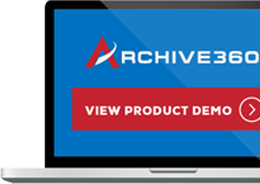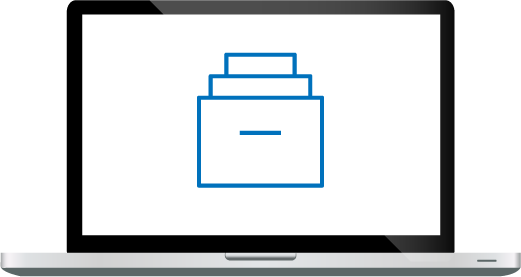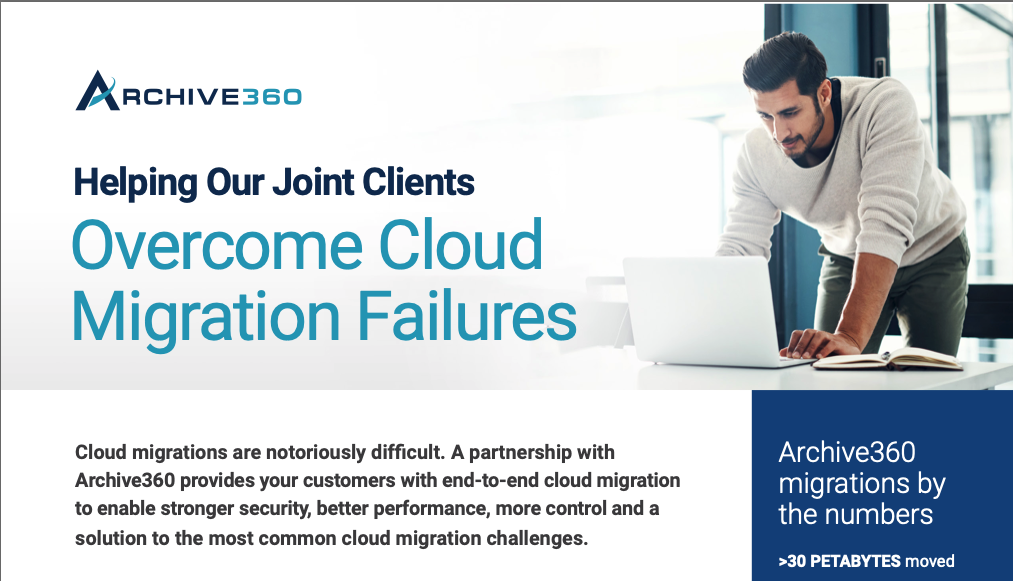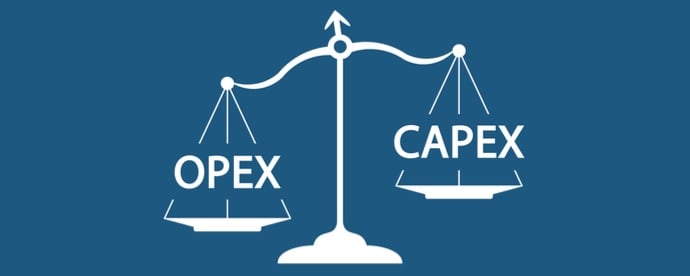Option 1: Moving to a SaaS solution
You’ll likely hear SaaS vendors claim they offer the best turn-key cloud archiving platforms but, in reality, they offer little more than an online environment without any of the benefits commonly associated with the cloud. Most SaaS vendors don’t own their own data centers but instead share a portion of a third-party cloud they rent. This is what’s known as a multi-tenant cloud, and it provides a significant drawback for the client – your encryption keys are controlled by the SaaS vendor with little access and control by you. Because encryption keys in a SaaS environment could be re-used across many clients, data breaches and the associated regulatory privacy issues are much greater. Additionally, this process opens up the possibility of unauthorized vendor access to your company’s most sensitive data, including the turning over of your data to government authorities or the courts without your knowledge.
Additionally, as one of many businesses sharing the same cloud, you must adhere to the SaaS vendor’s choices when it comes to security capabilities, the geographic location of your data, and the tools available to access it. Put simply, this one-size-fits-all approach robs you of control over your own data and the way it’s secured. Another issue to beware of is where the SaaS vendor reformats your data for their own convenience. By converting your data into their proprietary format, the SaaS vendor gains more control over when and if you can move out of the SaaS cloud if dissatisfied. This amounts to sentencing your content to a data prison, with huge charges incurred if you ever want to move your data out of the SaaS cloud platform. In addition to this data ransoming, you are also unable to make use of the cutting-edge solutions cloud computing delivers, such as powerful data analytics capabilities or ML (Machine Learning) and AI (Artificial Intelligence) technology to provide content-based auto-classification for accurate information management. Such restrictions can undermine your decision to move to the cloud in the first place as well as impact digital transformation initiatives and should be considered carefully in the context of your business and its future plans.
The negatives of SaaS archiving solutions:
- Little or no control over your data’s geographic location – data sovereignty
- Little to no control over security policies
- No access or control over encryption keys
- Proprietary formats limit your ability to move your data
- Limited search options for audio, video, and other non-email files
- Data analysis and eDiscovery functionality is limited to “lowest common denominator” vendor-provided tools
Believe the SaaS Security Stats
In a recent survey of global IT executives, including VPs, Directors, and members of the C-suite at major corporations, only 19% of those surveyed believed 75% or more of their SaaS vendors met all of their security requirements. 70% stated they had been forced to make at least one security exception for a SaaS vendor. While many of these organizations are likely using popular SaaS products like Microsoft Office 365 and Salesforce, where the size and standing of the vendor might make the business more amenable to accepting a perceived lower risk, the clear takeaway is that SaaS solutions don’t provide the security standards modern organizations require.
Elsewhere, on the topic of encryption keys, an astounding 95% of survey respondents believed it was important to control their own encryption keys, and 81% were uncomfortable with their SaaS vendors controlling them. However, 74% of those surveyed said they did not control the encryption keys for the majority of their SaaS solutions.
This is a worrying statistic and one that many organizations will have to take steps to reverse as regulations continue to tighten and the threat of cybercrime continues to grow. To that end, 92% of executives said they would need more security customization in the future, with 63% of them planning to retire SaaS applications that didn’t provide them control over encryption keys.
These security-related statistics paint a clear and frightening picture of the business security landscape and the risk that the one-size-fits-all approach of SaaS vendors introduces. As the trend for greater security customization continues and scrutiny over data access and handling increases, SaaS solutions will become increasingly less palatable for businesses aiming to de-risk their operations. Instead, more secure and customizable solutions will be sought.













%20Aug%202019/iStock-960195264.jpg)


-1.jpg)
